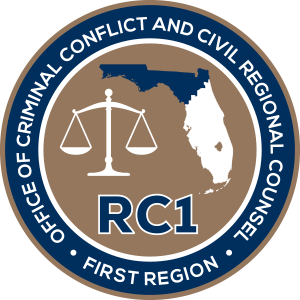Dependency Case Process – Chapter 39, Florida Statutes
A dependency action is a civil case brought before the Court based on allegations of abuse, abandonment or neglect of a child. The proceeding is based on allegations communicated to the Department of Children and Families (DCF) through an abuse report called into the Florida Abuse Hotline.
Shelter Hearing
DCF will investigate allegations reported, and if they believe the child is at imminent risk of harm due to abuse, abandonment or neglect, they will remove the child from the custody of the parent/parents or guardian. Within 24 hours of the child’s removal, the court will conduct a Shelter Hearing to determine if the child will remain out of the parent’s or guardian’s custody or be returned home. If the parent/parents are indigent and cannot afford an attorney, the court will appoint one for them. One parent will be appointed an attorney from the Office of Criminal Conflict and Civil Regional Counsel and the other will be appointed an attorney from a private attorney registry list. Parents are entitled to representation at every stage of the dependency process. The attorney is appointed at no cost to the parent but an application fee of $50 will be assessed for the determination of indigency. The attorney will explain the legal process to the parent/parents and advocate on their behalf. Additionally, the Court will appoint a Guardian Ad Litem who is a community volunteer who advocates for the best interests of the child. If the child remains sheltered, DCF will file a Petition for Dependency and the Judge will set another hearing called an arraignment.
Arraignment Hearing
At the arraignment hearing, the Court will review the allegations in the Petition for Dependency and ask the parent/parents to enter a plea. The parent may admit to the allegations, consent to a case plan without admitting the allegations or deny the allegations contained in the Dependency Petition and ask for an adjudicatory hearing.
Most common is a consent without admitting the allegations. Before consenting to complete a case plan, the parties will meet to develop a case plan that identifies the specific services necessary to resolve the issues alleged in the petition and alleviate the risks to the child. This may be done by informal mediation, formal mediation, or just pre-hearing negotiations. A consent will only be entered once the parent has had enough time to confer with their attorney about all of their options.
Disposition Hearing
At the Disposition Hearing the Court will review and accept the case plan and determine who shall have custody of the child(ren) while the parents complete their case plan. Florida law gives a parent up to one year to complete the case plan but this time limit can be shortened or lengthened under certain circumstances that your attorney will explain.
Judicial Review
Every six months the Court will schedule a Judicial Review Hearing. At this hearing the Court will review the child(ren)’s placement, discuss progress on the case plan and address whether everyone involved is doing what he or she is supposed to be doing.
Reunification
Children that have been removed from their parent/parents will be reunified when the Court determines that the risks which brought the case before the court are alleviated and the child(ren) can return home safely. Generally, this finding is related to the parent/parents’ compliance with his and/or her case plan. After reunification, the Court must monitor the family for at least six months.
Termination of Parental Rights
In some cases, DCF may file a petition to terminate a parent’s rights. A Petition for Termination of Parental Rights (TPR) requests the Court to end all legal rights of a parent/parents. In the most severe cases, a case plan may not be offered before this petition is filed but most commonly, a TPR petition is filed primarily because of failure to complete a case plan although this is just one ground of many that can be alleged. The parent/parents is given an opportunity to be represented by an attorney and have a trial where DCF must present clear and convincing evidence to prove their case.



